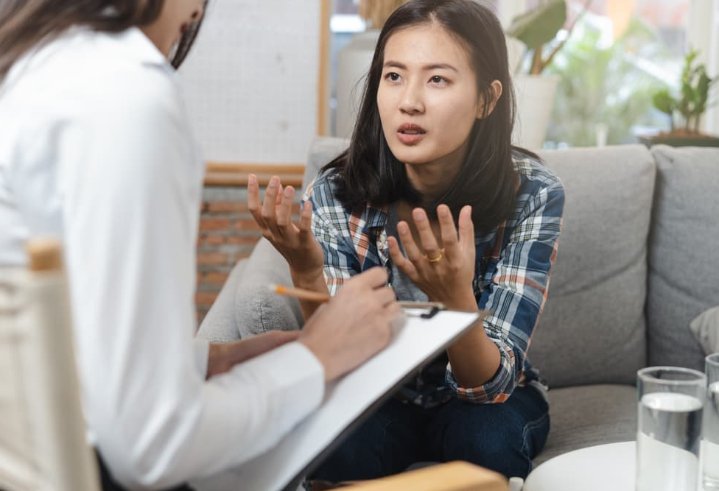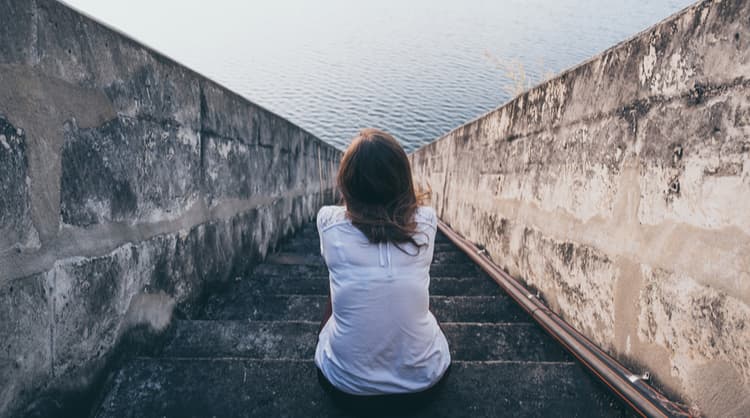Counselling in the Time of COVID-19: why it’s an essential health service

It’s hard to believe we’re at the tail end of 2020.
Since COVID-19 took hold of life as we knew it back in March, humanity has inarguably endured the ultimate of tests; physically, mentally and emotionally.
We’ve been isolated from each other, deprived of hugs, handshakes and high fives while marooned in societal solitude, all while contending with the worst economic fall out since the Great Depression
Throw in the constant media reporting of unfathomable rates of illness and lives lost to the virus and it has been an unforgiving, brutal beating to our collective psyche.
Australia is going through a mental health crisis

Additionally, half of those surveyed described feelings of uncertainty, loneliness and financial struggles and the rate of depression, anxiety and stress levels were reported at 65%, 50% and 64%, respectively.
There is no doubt of the horrific physical toll COVID-19 has taken on the global population, with health organisations and governments able to capture and quantify numbers of confirmed cases and, more heartbreakingly, the deaths of millions.
However, and albeit more “invisible”, the ensuing mental health crisis catalysed by the coronavirus pandemic already has the capacity to become more insidious in the coming months (as a person with an existing anxiety disorder, I’m already anticipating the long- term psychological impacts that will be the result of the adverse emotional challenges we’ve endured this year).
It’s because of these various, collective community mental health stressors caused by the COVID-19 experience that counselling services have seen a surge in demand over the past several months.
In saying this, we are incredibly fortunate to live in a country whose leaders have acknowledged the ensuing emotional health struggle thousands of Australians are currently facing and will continue to face in the wake of this pandemic.
The government has recognised the growing need of mental health services
Earlier this month, the Australian Government made available 10 additional Medicare subsidised psychological therapy sessions each calendar year for people experiencing severe or enduring mental health impacts from coronavirus, and the measures needed to contain it.
And this expanded measure will be available until 30 June 2022.
So why is access to comprehensive counselling services so vitally important, especially now?
We are enduring a once in a century health crisis that has tested our resolve like nothing else and with no past precedent any of us can refer to that helps us gain a better understanding of how to reason and respond to it, we may feel completely adrift.
Simply put, the stressors present in daily life now can feel overwhelming and uncontrollable; human connection as we know it has been lost and we just don’t know when we will get that sense of normal back.
These feelings of hopelessness, anger, grief and even denial in response to our new reality are sometimes just too much to process. And that is nothing short of understandable.
Financial and employment struggles has raised demand for counsellors

Counsellors are also able to offer various tools and techniques that can help manage anxiety and anxiety as well as general feelings of despair in patients.
They can also assist in identifying the stressors affecting each person they consult with; some of these stressors are obvious like loss of employment and the resulting financial struggles, the genuine fear of infection and also those persistent feelings of frustration and boredom.
However less obvious stressors, and thus ones that might be harder to calibrate for some people, may include feelings of chronic hopelessness (there is a saying that in a disaster, hope is the first casualty), experience of stigma for those who have tested positive to the virus, feelings of increased familial pressure to keep it together, the demands of children needing more attachment/attention due to uncertainty and, unsurprisingly, challenges mitigating the minefield of loss and grief.
Counselling leads to better mental health management
By seeing a counsellor, pathways to better mental health management can become clearer and patients can learn to identify and find ways to co-exist with external factors beyond their control.
As philosopher Bernard Williams once quipped: “Man never made any material as resilient as the human spirit.” We will endure and emerge from these less than ideal times, hopefully stronger and with more gratitude to show than before.
If you're interested in pursuing a career in counselling, or even just equipping yourself with further knowledge that could help support friends, family or even yourself through these challenging times, Upskilled offers the CHC51015 - Diploma of Counselling; a self-paced, online course conducted over a 24 month period.
By learning how to foster a therapeutic relationship with people in vulnerable situations through the practical and theoretical knowledge this comprehensive qualification offers, the course will help you develop interpersonal skills in empathy, rapport building, and mediation during conflict, enabling you to work in either an agency or private practice as you help support those in need.
For more information, get in touch with Upskilled today - 1300 009 924
--------------------
24/7 services offering counselling and support
Head to Health: www.headtohealth.gov.au Beyond Blue: 1800 512 348 | https://coronavirus.beyondblue.org.au/ Lifeline Australia: 13 11 14 | www.lifeline.org.au Kids Helpline: 1800 55 1800 | www.kidshelpline.com.au
Suicide Call-Back Service: 1300 659 467 | www.suicidecallbackservice.org.au MensLine Australia: 1300 78 99 78 | www.mensline.org.au Open Arms: Veterans and Families Counselling: 1800 011 046 | www.openarms.gov.au


)
)

